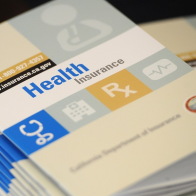
It’s World Sleep Day, so why not spark up a conversation about getting your Zzzzs?
I’ve never been accused of snoring (*wink), but I’ve been in the room with some people that sound like they’ve swallowed a lawn mower. I remember one of the weirdest moments I’ve had with a snorer; she stopped breathing for over a minute and then suddenly regained her snoring pattern. When she woke up, she claimed it happens all the time but she understood she needed to find some help so she wouldn’t stop breathing forever.
Obstructive sleep apnea — characterized by loud snoring, interrupted breathing and multiple nighttime awakenings — is more than a nuisance. It can be a real threat to health, due to its links to obesity and cardiovascular disease.
Studies have found that blacks are more prone to this potentially dangerous condition than whites. They’re also less likely to seek treatment for the disorder.
Almost 80 percent of blacks have common signs of obstructive sleep apnea, while only 55 percent of whites do, according to a study presented at the American Academy of Otolaryngology Head and Neck Surgery.
According to Huffington Post, sleep apnea poses an even more sinister threat to one’s health: silent stroke.
Silent strokes don’t exhibit any outwardly symptoms and most people have no idea they’ve suffered one. Medical brochures tell people to look out for the typical signs of stroke, which are slurred speech, blurry vision, and/or paralysis. Since you’ll have no signs, it’s important to figure out what your sleep pattern is because silent stokes can be a precursor to a major stroke.
When a person suffers from sleep apnea, their airway collapses during sleep. This airway collapse temporarily cuts off breathing and diminishes the levels of oxygen in the bloodstream. People who suffer from moderate to severe sleep apnea have episodes of disrupted breathing dozens, even hundreds, of times per night.
According to Dr. Michael J. Breus, a resident medical contributor Huffington Post, gives other health effects of not sleeping enough.
Obstructive sleep apnea has been linked to:
- Cardiovascular problems. In addition to being a risk factor for stroke, sleep apnea is also associated with hypertension, heart disease and heart failure. This study found that obstructive sleep apnea increased a person’s risk of heart attack by 30 percent over a four- to five-year period.
- Diabetes. There’s increasing evidence of a link between diabetes and sleep apnea. This study found high rates of obstructive sleep apnea among men with Type 2 diabetes. Even worse news: Most of these sleep apnea cases were undiagnosed before the study.
- Sexual dysfunction. Sleep apnea has been shown to cause sexual problems in both men and women. This study showed women with sleep apnea had significantly higher rates of sexual problems, both with sexual performance and satisfaction. This research revealed that men with erectile dysfunction were more than twice as likely to also suffer from obstructive sleep apnea.






